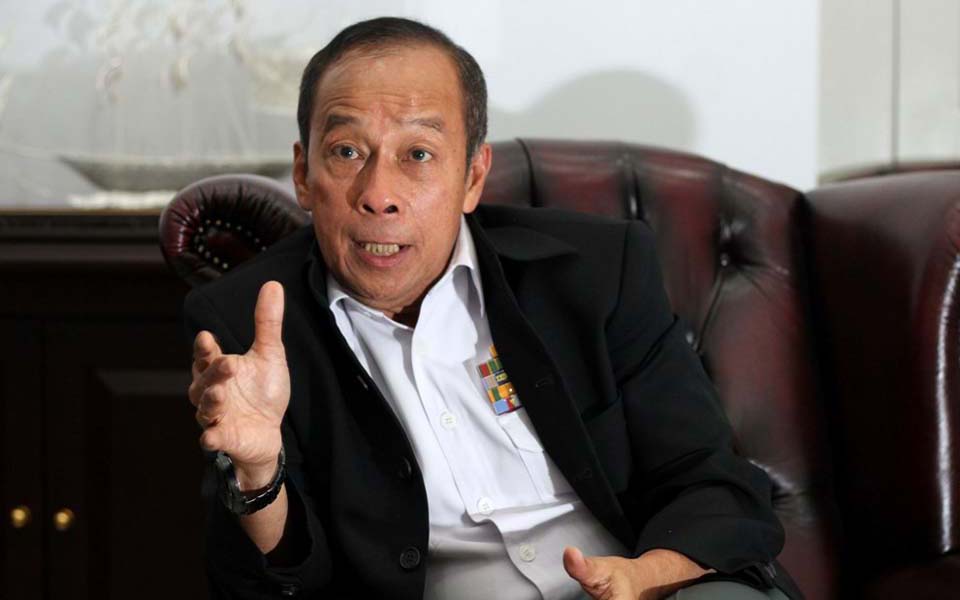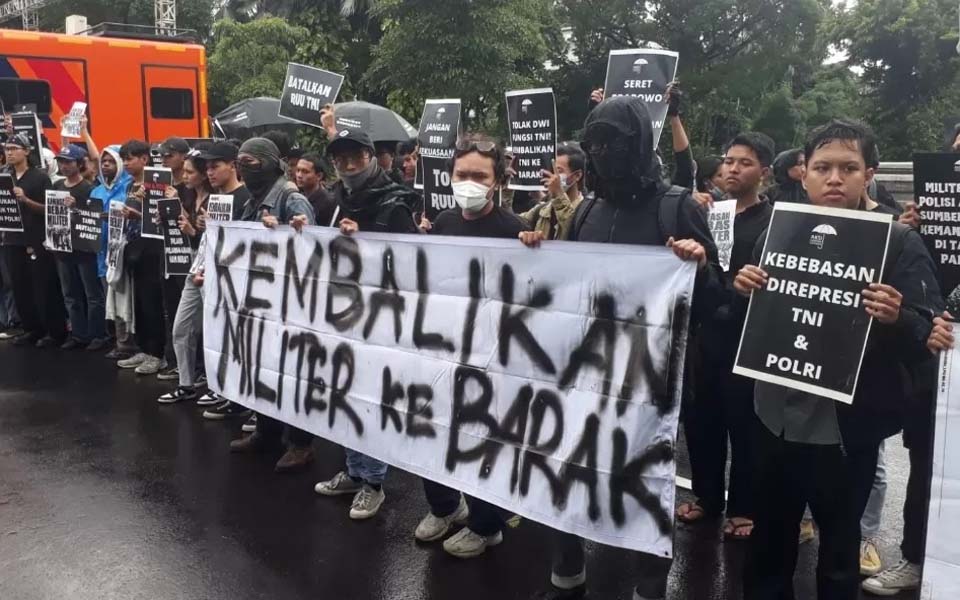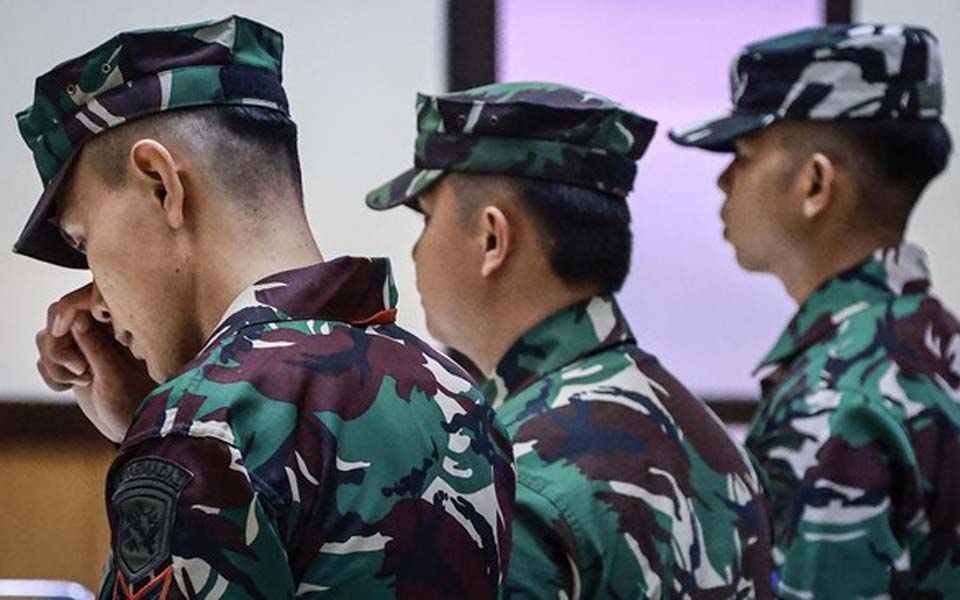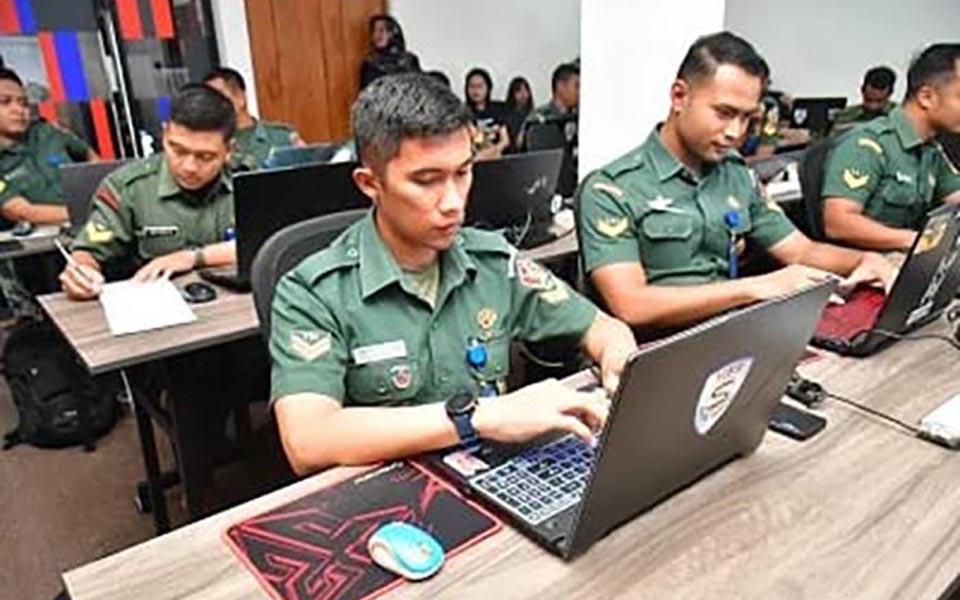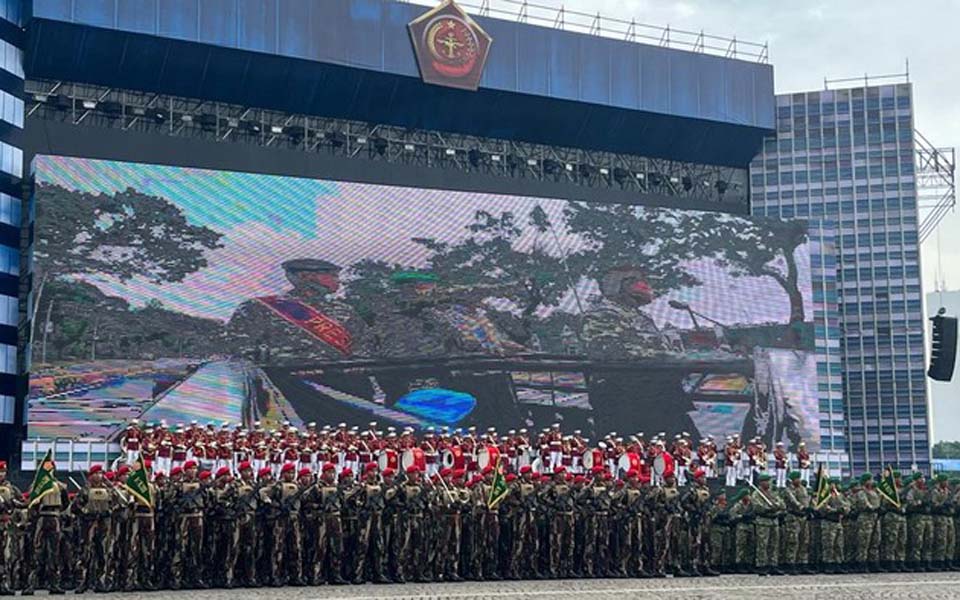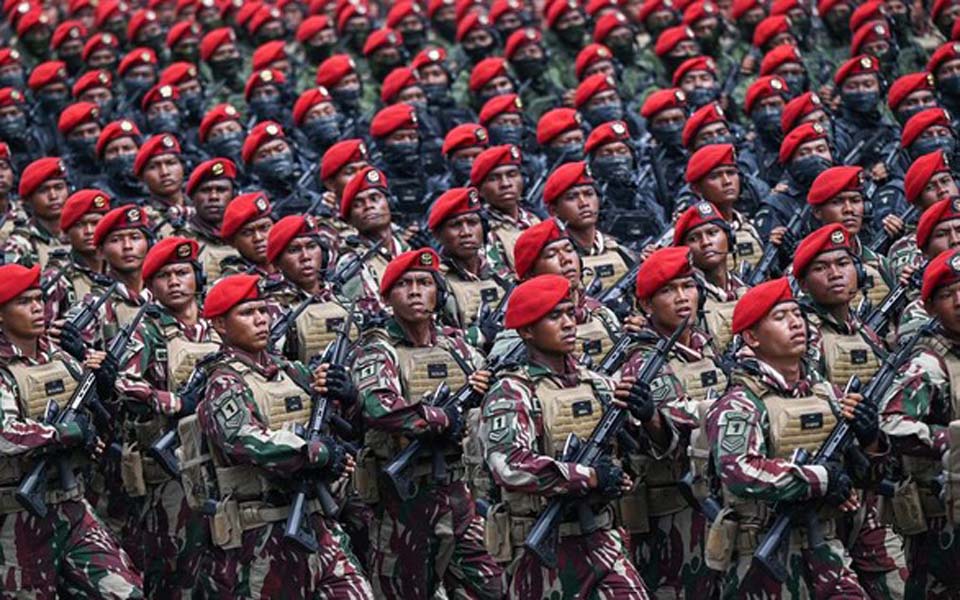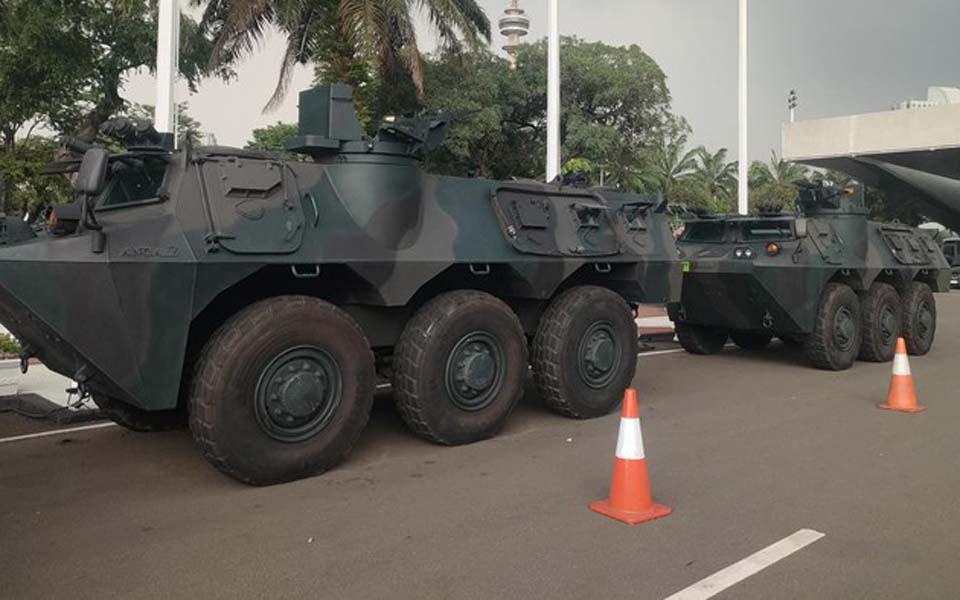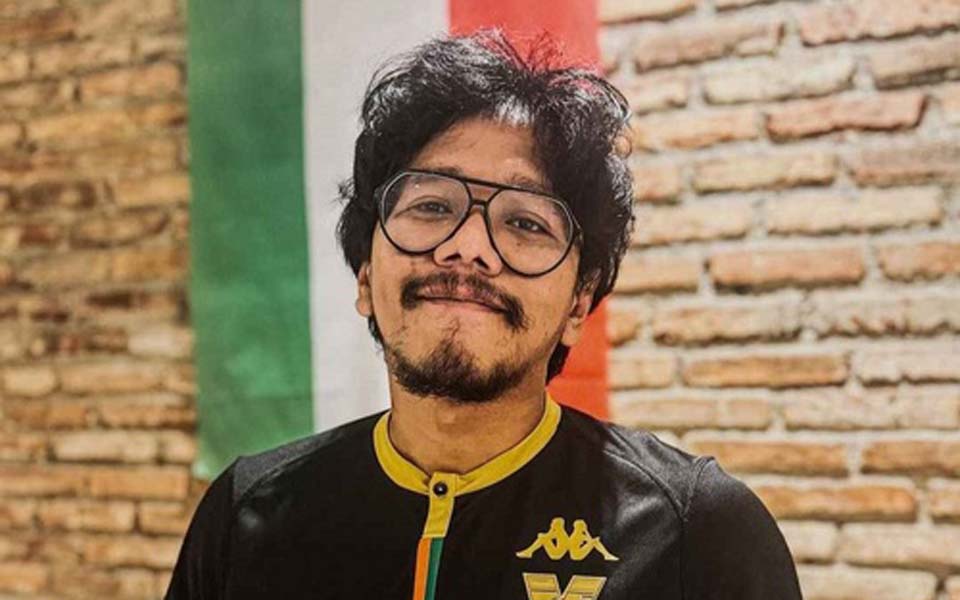Jakarta – Discussion of the Draft Law on Defense and Security (RUU Hankam) which has been initiated up by Defense Minister Juwono Sudarsono is a step backwards in efforts to reform the Indonesian armed forces (TNI).
This view was expressed separately by the former TNI chief of territorial affairs retired Lieutenant General Agus Widjojo and the chairperson of the National Mandate Party Amien Rais on Wednesday (16/2) the Thursday (17/2).
Widjojo believes the functions of defense and security are different and cannot be united because the security portfolio which to date has been held by the Indonesian national police and defense which is held by the TNI are totally different. “It isn’t that easy to unite the functions of defense and security. This is a solution which is too simplistic”, said Widjojo.
Rais believes the merging of the functions of the TNI and national police is the start of the liquidation of democracy. Rais said further that it was a strange thing for the minister of defense to say that the separation of the functions of the TNI and police to date are a kind excess reformasi.
“The separation of the functions between the TNI as the backbone of national defense and the police as the backbone of national security represents a proportional result of reformasi. So it is very strange if this is said to be excessive reformasi”, he said.
Earlier, in an interview with Sinar Harapapn on Tuesday February 15, the head of the legal bureau of the Department of Defense Brigadier General Sugeng Widodo said that the RUU Hankam will become a legal umbrella for Law Number 3/2003 on National Defense, Law Number 2/2002 on the Indonesian National Police and Law Number 34/2004 on the TNI. According to Widodo, revisions can later be made to all laws which refer to the RUU Hankam.
So far, plans to draft a law on defense and security have been restricted to academic writings and study. Widodo however says that there are a number of points which must later be inserted into the RUU Hankam including the question of the concept of foreign and domestic defense, mechanisms for making decisions, the formation of a defense and security council and the issue of a reserve force. In the future, the position of the TNI under the Department of Defense and the police under the Department of Home affairs or the Department of Legal Affairs and Human Rights will also be regulated.
With regard to the plan, Widodo says that the Department of Defense should hold a public consultation. “Don’t make policies only based on the decisions of a small section of the elite”, he said.
Widodo also believes that if the RUU Hankam later flows on to the realisation of the placement of the TNI under the Department of Defense and the police under the Department of Home Affairs – as part of realising reform in the TNI/Police – it would be best if it was not done in a complicated manner. “If the aim is to carry out reformasi, look for the shortest way, don’t instead create a new problem”, he said.
An observer from the Propatria Institute for Military Studies, Hari Prihartono, believes that it is inappropriate for the Minister of Defense to initiate a discussion about the integration of the TNI and police in parliament.
According to Prihartono, Sudarsono should not confuse his role as an academic and the minister of defense. it is enough for Sudarsono to moot the idea in accordance with his authority as the minister of defense, but it shouldn’t be spun off onto other institutions such as the police which are not under his authority. “It will become a big problem if the defense minister spins it off onto other institutions because the police are not under his authority”, said Prihartono.
Prihartono says that he is unable to comment yet on the RUU Hankam which is presently still in the form of an academic document. “Later if it is already in the form of a draft [law] it will be easier to comment [on it] article by article”, he said.
He believes that in its conceptual form as it is now there are still many changes which will be made. The discussion of the draft of the RUU Hankam must continue and be handled by an internal Defense Department team which is coordinated by the head of the legal bureau, Widodo.
The team is made up of five TNI officer with the rank of colonel. Three of them are members of the legal bureau, that is Colonel Dharmadi, Colonel Heru and Colonel Ahwani. The two other officers are from the Directorate General of Defense Forces in the Department of Defense.
Prihartono added that the RUU Hankam has more or less adopted the concept of national security which has previously been proposed by Propatria. This document includes issues of internal security and defense. “But I don’t know how it happened that a draft of the RUU Hankam such as this appeared. It doesn’t appear to fit because it has most certainly been taken from a different concept”, he said.
Not under a single roof
Indonesian chief of police General Da’i Bahtiar meanwhile says that he doesn’t feel convinced that the TNI and police could come under one roof. “I don’t know exactly and [wish to] comment on that one issue, but what I heard was [it would] not united [them] under one roof. Perhaps what is being considered is how to integrate TNI or police aid [efforts]”, he said in Semarang on Wednesday February 16.
Responding to the defense minister’s statement which said that his office was currently preparing amendments to the Defense Aceh, that is that the TNI and police would be under the coordination of the Department for Legal, Political and Security affairs, Bahtiar admitted that for the time being TNI or police aid efforts have no government regulation or reference which is mandated by law.
Although at the moment joint work and their mechanisms are functioning, according to Bahtiar a standard regulation is still needed. “So, perhaps what was meant by the minister of defense is only about the implementation, what is the social relationship between the TNI and the police”, he explained. (ant/yuk/san/emy)
[Translated by James Balowski.]





